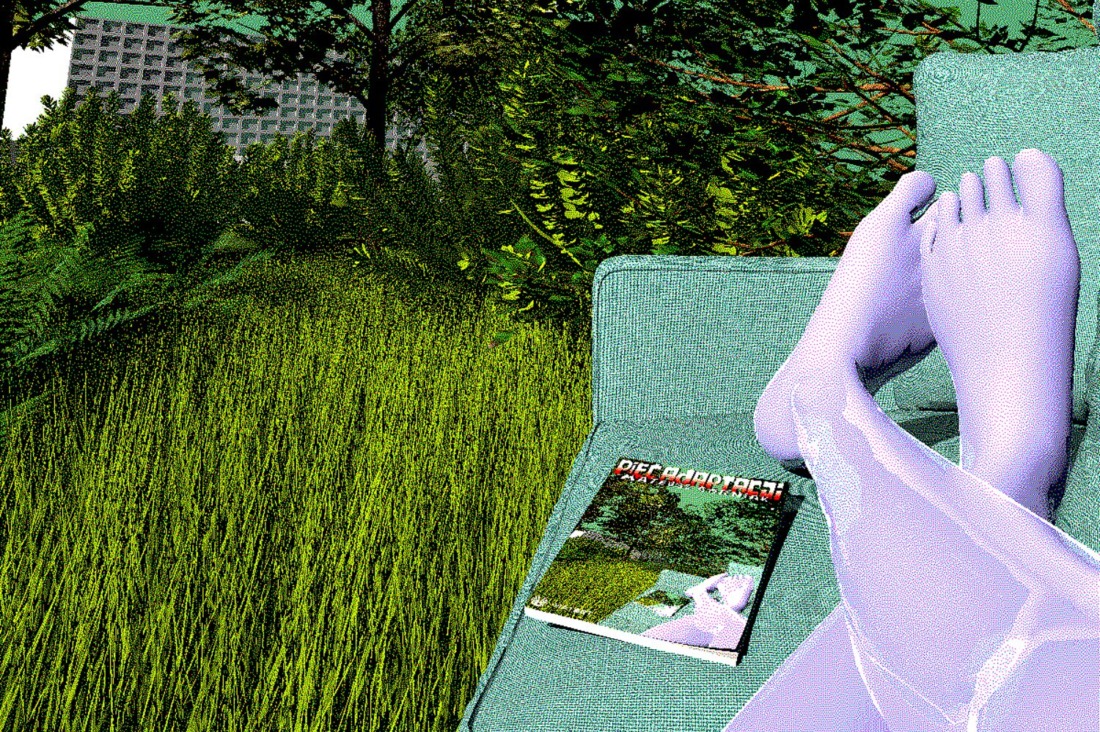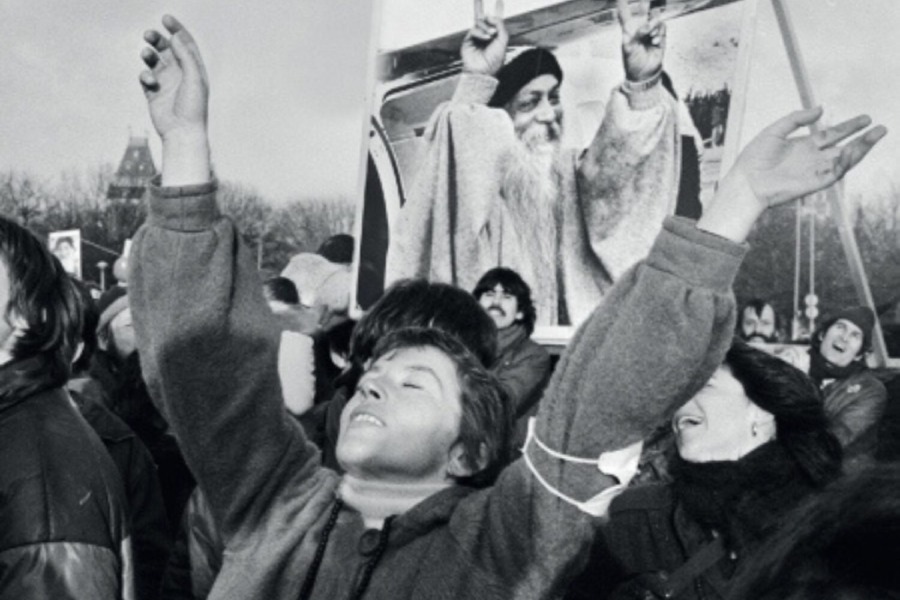Szanowni Państwo, niezwykłej urody eseju Vernon Lee. Smak i takt. Wędrówka przez słowa w sam raz na sierpień. Zapraszamy do lektury!
Redakcja
Vernon Lee
Genius Loci
IT had rained heavily, that last day at Verona, and cleared up in the afternoon. I bought a bunch of lavender for remembrance; and had some coffee, before starting, in Piazza dei Signori. The stones were still wet, but the sky clear. Moist clouds were sailing above the towers; the town pigeons pecking on the pavement and flying into the palace crannies; swallows screaming; the sun, invisible behind roofs, was setting. 'Tis at this hour, to the sound of bells, that the genius of old cities seems to gather himself up and overcome one’s heart.
To certain among us, undeniably, places, localities (I can find no reverent and tender enough expression for them in our practical, personal language) become objects of intense and most intimate feeling. Quite irrespective of their inhabitants, and virtually of their written history, they can touch us like living creatures and one can have with them friendship of the deepest and most satisfying sort.
To say this may seem nonsense if we think of friendship as what it largely is, a mere practical and in the main accidental relation, wherein exchange of ideas and good offices, fetching and carrying for one another, and toiling and moiling in company, plays the principal part. But there are other possibilities, surely, in friendship, its very best portion; and such may exist in our relations with places. Indeed, when I try to define the greatest good which human creatures can do us, good far transcending any practical help or intellectual guidance, it seems to express itself quite naturally in vague metaphors borrowed from those other friends who are not human beings: for it is the good of charming us, of raising our spirits, of subduing our feelings into serenity and happiness; of singing in our memory like melodies; and bringing out, even as melodies do when we hear or remember them, whatever small twitter of music there may be in our soul. These are the highest gifts of our human affections; and surely we receive them equally, nay, sometimes even better, from the impersonal reality whom I call, for want of a better name, and from a lurking wish to bring some thanksgiving, the Genius Loci.
Genius Loci. A divinity, certainly, great or small as the case may be, and deserving of some silent worship. But, for mercy’s sake, not a personification; not a man or woman with mural crown and attributes, and detestable definite history, like the dreadful ladies who sit round the Place de la Concorde. To think of a place or a country in human shape is, for all the practice of rhetoricians, not to think of it at all. No, no. The Genius Loci, like all worthy divinities, is of the substance of our heart and mind, a spiritual reality. And as for visible embodiment, why that is the place itself, or the country; and the features and speech are the lie of the land, pitch of the streets, sound of bells or of weirs; above all, perhaps, that strangely impressive combination, noted by Virgil, of ” rivers washing round old city walls „:
Fluminaque antiquos subterlabentia muros.
That line of Virgil, in a passage which, like so many of Dante’s, shows the deep power of localities over the Latin mind, must naturally suggest the Adige; and bring me back to those solitary days at Verona, when I found myself returning continually to watch the great reddish swirls of the river, with the big floating mills rocked on their surface. And this reminds me that, although what I call the Genius Loci can never be personified, we may yet feel him nearer and more potent in some individual monument or feature of the landscape. He is immanent very often, and subduing our hearts most deeply, at a given turn of a road; or a path cut in terraces in a hillside, with view of great distant mountains; or, again, in a church like Classe, near Ravenna; most of all, perhaps, in the meeting-place of streams, or the mouth of a river, both of which draw our feet and thoughts time after time, we know not why or wherefore. The genius of places lurks there; or, more strictly, he is it.
I have compared the feelings we can have for places with the feelings awakened in us by certain of our friends—feelings of love and gratitude, but not of prosaic familiarity or wish for community of commonplace. But as there are, or at least may be, some human relationships which constitute the bulk of life, and yet remain its poetry, so there are one or two places for every individual, where he may live habitually, yet never lose the sense of delight, wonder, and gratitude. Certain river districts, no doubt, in England; and, for the present writer, the Tuscan valleys and stony hillsides.
The type of all such places is, however, Rome. Its legendary power over our heart cannot be fathomed eyen by those of its most devoted lovers, who have known it only for its own sake, and on purpose to enjoy, as a holiday, its Genius Loci. It takes months and years of prosaic residence to really appreciate the extraordinary fashion in which the troubles and trivialities of life, so far from diminishing this imaginative power, are subdued into proper insignificance; lost in Rome’s seriousness and serenity, and in that assurance which Rome tacitly gives, like some rare human beings, that life, though short, is worthy of being lived with earnestness and grace.
But it was not of such an exceptional, nay, unique, case that I was thinking when I entered on the subject of our friendship with places; not of the love unflagging and for ever, but rather of mere amours de voyage (in the most worthy sense) where, though the remembrance may be long, the actual moment of meeting („now we have met we are safe,” as Whitman says) is necessarily very brief.
Trifling incidents, standing in these matters like a book read together or a flower given in more human relationships, sometimes have the effect of turning a locality from a geographical expression into something of one’s very own; indeed, one charm of fishing or shooting, for meditative persons, is undoubtedly that it brings a more intimate connection between places and oneself. In the same manner I have a feeling as of something like a troth plighted, or a religious rite accomplished, binding the place and me together, from having drunk once from a spring which spirted across the remote, ” back of beyond ” road between Subiaco and Tivoli, one March day that the dust was rising in whirlpools. Nay, I feel sometimes as if I should like not to drink, but to pour a libation or hang up a garland in honour of the Genius Loci, indeed. …
But enough. I suppose it was some silly sentiment of this kind which, when I had been three or four times to look at the floating mills of the Adige, made me buy that bunch of lavender in the market-place of Verona, when the sun was setting, and the swallows whirring, and the bells beginning to ring the presence of the divinity of places.
* Vernon Lee [prawdziwe nazwisko: Violet Paget] (1856 – 1935). Eseistka, poetka.







